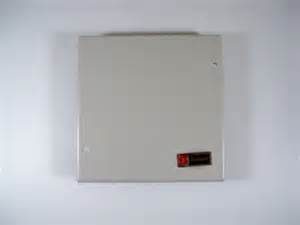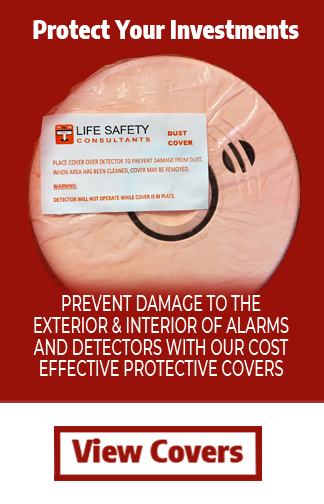 Do you want to enhance the fire alarm system that you already have installed in your commercial facility? Simplex can help you do it by providing you with a wide range of advanced peripherals that are designed to help your current system meet any applicable codes while offering you more protection from fires and the heat and smoke that come along with them. The TrueAlarm Analogue Addressable Smoke and Heat Sensors and Non-Addressable Smoke and Heat Detectors are two great options. See what separates them below.
Do you want to enhance the fire alarm system that you already have installed in your commercial facility? Simplex can help you do it by providing you with a wide range of advanced peripherals that are designed to help your current system meet any applicable codes while offering you more protection from fires and the heat and smoke that come along with them. The TrueAlarm Analogue Addressable Smoke and Heat Sensors and Non-Addressable Smoke and Heat Detectors are two great options. See what separates them below.
TrueAlarm Analogue Addressable Smoke and Heat Sensors
The TrueAlarm Analogue Addressable Smoke and Heat Sensors aren’t terribly expensive to install or maintain. Notably, they’ll provide you with an array of features you wouldn’t be able to enjoy otherwise. They include intelligent sensing to cut down on the number of nuisance alarms you experience. They can also be adjusted to accommodate for dirt, dust, humidity, and even age. And of course, they have full interactive communications.
Non-Addressable Smoke and Heat Detectors
The Non-Addressable Smoke and Heat Detectors are typically the right choice for those with non-addressable and legacy fire alarm environments as well as those with facilities that are on the smaller side. They feature a photoelectric detector that has an onboard microprocessor in it to provide you with auto drift compensation. They also have self-restoring heat detectors and nuisance alarm prevention built in along with built-in sensitivity testing that will bring down your maintenance costs.
Are you confused as to which Simplex advanced peripherals might be the right choice for you? Life Safety Consultants stocks many Simplex products and can help you pick out the one that will work best for your facility. Call us at 888-557-0558 today to speak with someone about TrueAlarm Analogue Addressable Smoke and Heat Sensors and Non-Addressable Smoke and Heat Detectors.

